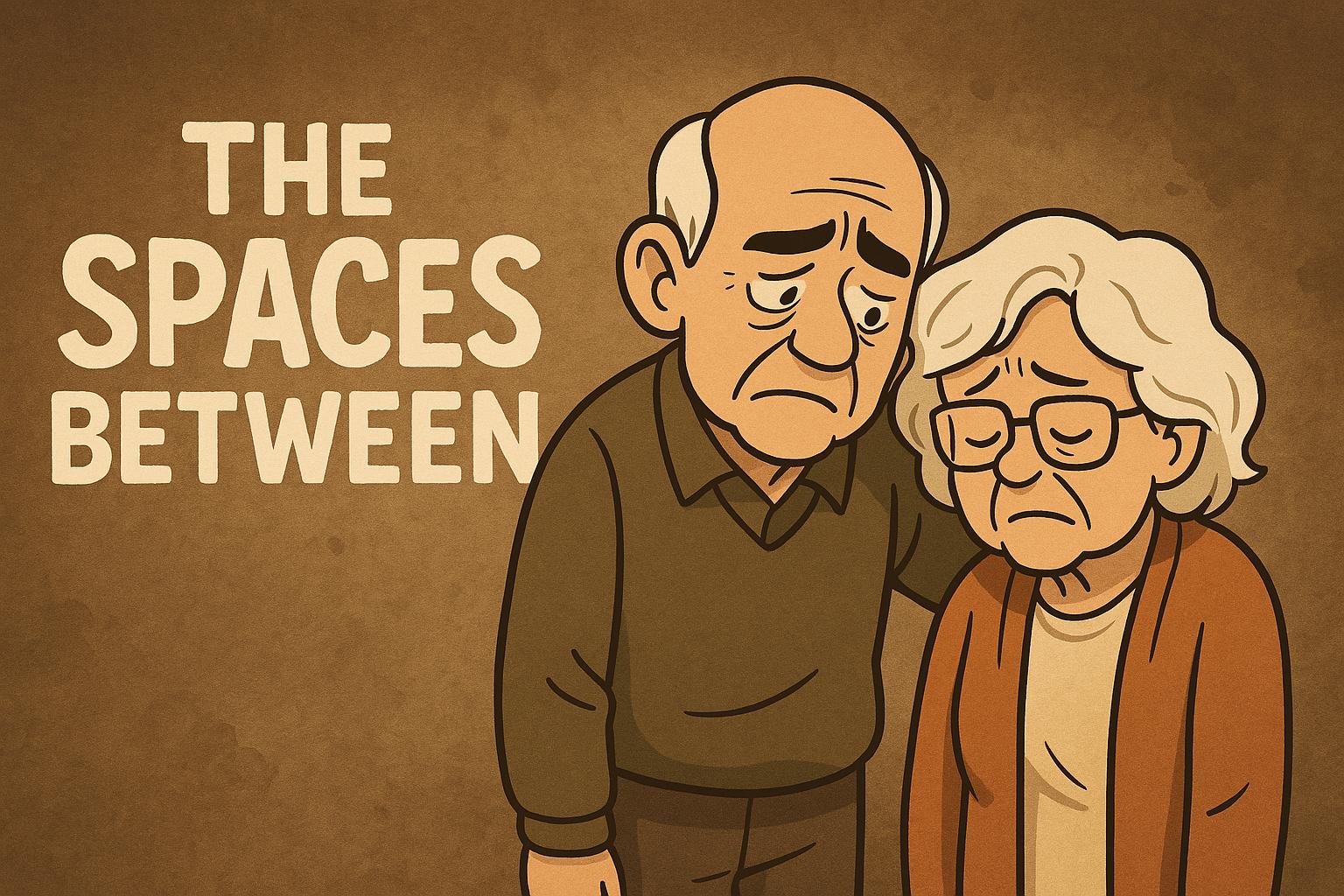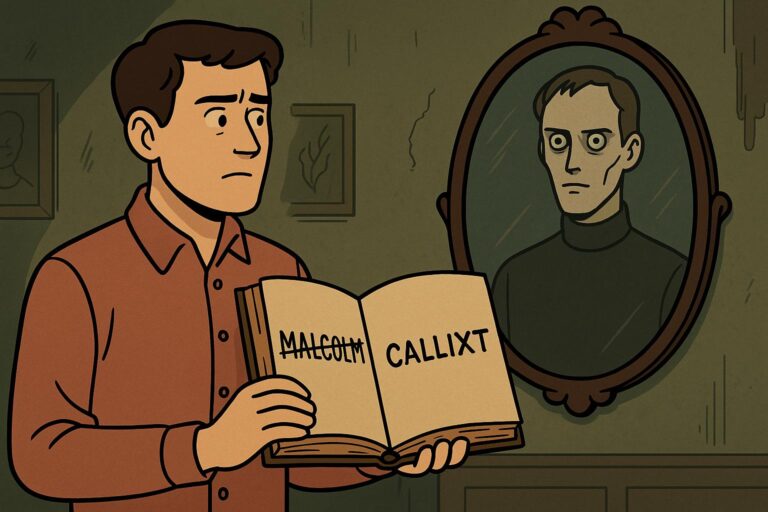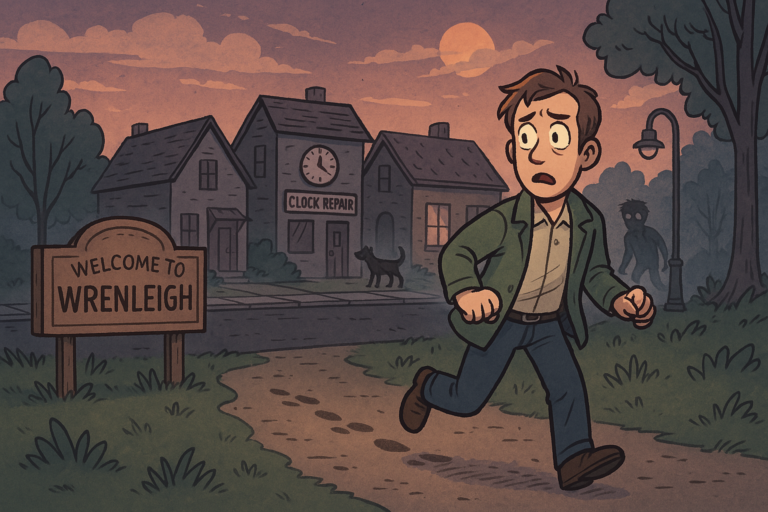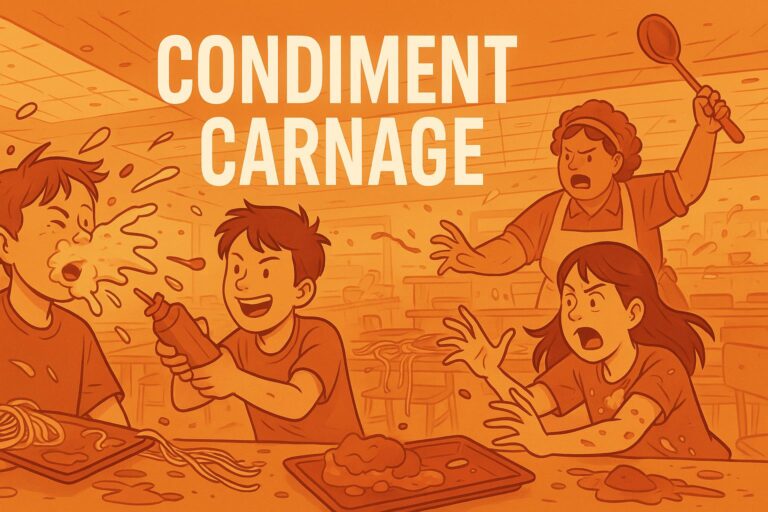The Spaces Between

The house has too many windows now.
It never used to. Back when Mara was herself, she filled the rooms with heavy curtains, soft and dusky, like the fabric held onto memories just a little longer than time did.
Now the curtains are gone, stuffed in trash bags in the attic—or maybe donated to a faceless charity I never saw. Mara did that. After the diagnosis. Said she wanted more light, more life in the place. I think she hoped the sun would burn the fog away.
It didn’t.
Every morning I watch her shuffle from room to room, her bare feet brushing against the floor like a ghost that hasn’t realized it died. She speaks less now, but when she does, the words land out of order, as if some great cosmic editor has scrambled her pages and lost the originals.
This morning, she called me by her brother’s name—Jonas—then blinked at me, confused, like she couldn’t remember where she’d put me last.
I play along, most days.
Sometimes I wonder if it would be easier if she were just… gone. A car crash. A heart attack. Some finite, comprehensible ending that I could fold away like a letter with sharp, precise creases.
But this?
This is death on layaway. Every day, a little less of her is delivered.
Yesterday, she forgot our wedding.
Not the year, not the weather, not the way the peonies bent under their own bloom in the garden where we said our vows.
She forgot we’d ever been married.
She looked at the ring on her finger and asked who gave it to her.
My voice cracked when I told her. She frowned, not with disbelief, but as though the truth didn’t matter. “That’s nice,” she said. Then she went back to shelling peas at the kitchen table.
I’ve started writing our story down. Every day, after she’s fallen asleep with her head tilted back like a marionette mid-collapse, I sit at the old desk in the study and write one memory. Just one. A detail. A color. A line of a song we danced to in the kitchen during that first summer when the power went out and we made love by candlelight and sweat.
I call it The Book of Us.
I used to read it to her.
Now, she doesn’t understand it. Sometimes she giggles at the wrong parts, or grows afraid. She once grew hysterical at a passage about our honeymoon in Venice, insisting I was trying to trick her. She didn’t know me, she cried. She had never been to Italy. Why was I lying?
That night, she slept in the guest room. Locked the door. I heard her crying through the wall.
I cried with her.
It’s gotten worse this week. More than just forgetting names or places. The light’s changed behind her eyes. Sometimes, when I speak to her, she stares through me, like she’s listening to someone else in the room. The doctors said this could happen—hallucinations, shadow people, whispers from the corners of the mind. But I see her lips move now when no sound comes out. Her hands trace symbols in the air I can’t understand.
She speaks in tongues when she dreams.
Last night, she said something in a language I’ve never heard before—guttural and ancient, like the cracking of bones underwater. I recorded it on my phone. Played it back a dozen times. The sound makes me feel cold.
Today, I found her in the attic. She never goes in the attic. She has arthritis in her knees and the ladder’s too steep. But there she was, standing among the boxes with dust falling around her like ash, whispering to the corner of the room.
There was nothing there.
Just a dark spot in the boards where a water leak had stained the wood in the shape of an eye. She didn’t hear me at first, and when she did, she turned slowly, like something else had to release her first.
“You were supposed to leave,” she said.
The words hit me like a slap. “What?”
“You were never meant to stay. You were… taken. Swallowed. But you held on.” She blinked, frowned, and tilted her head like a bird. “I don’t remember your name.”
I stood frozen. “It’s me, Mara.”
She smiled. Not warmly.
“I don’t remember you,” she said, and turned back to the wall.
I’ve started sleeping with the lights on.
And I’ve locked the attic door.
I know how it sounds. I know grief and fear can reshape the world around us. But something is wrong. I think—no, I know—this isn’t just dementia anymore.
She hums a song in the kitchen I’ve never heard before. It loops endlessly. A strange lullaby. I looked it up online. It doesn’t exist. The notes don’t make sense in any traditional scale, and it leaves a ringing in my ears long after it stops.
There’s a smell in the house now. Like mold and iron. Like old water sitting in pipes that haven’t been touched in decades.
I opened The Book of Us last night to find the pages warped and curling inward, as if the paper itself was recoiling from the words. My handwriting looked… altered. Tilted, frantic. I don’t remember writing the last entry.
“She remembers me now. But she shouldn’t. She remembers the part of me I forgot.”
This morning, she spoke clearly for the first time in weeks. I almost cried with relief.
“It’s almost time,” she said, stirring sugar into tea.
“For what?”
She smiled. “For you to go back. You were never supposed to leave. You broke something when you did. It’s trying to fix it.”
“What is?”
She looked at me—really looked—and I swear to God her eyes were not her eyes. Not blue, like Mara’s always were. They were black. Endless. Like pits that stretched too far back into her skull.
“Don’t worry,” she whispered. “I’ll help you forget. Just like I did the first time.”
Then she kissed my forehead.
And walked upstairs.
I haven’t seen her since.
It’s night now.
The house is so, so quiet.
The attic door is open.
I don’t remember opening it.
There’s something moving up there. A soft scuttling. Not quite footsteps, but not quite rats either. I went to call her name, but I hesitated. Because I’m no longer sure what I’ll bring down.
I sit at the desk now, writing faster than I ever have. The Book of Us is open beside me, but the ink keeps smearing no matter how long I let it dry. The memories won’t stay put. They slide off the page like oil on glass.
I keep repeating the ones I know are true:
We met in the library. She wore a yellow scarf.
We danced in the storm on our fifth anniversary.
She made bad coffee and I drank it anyway.
She laughed like wind chimes and sunlight.
But now even those feel brittle. Like someone else’s dreams stitched to the back of my mind.
And I can hear her calling me.
Not with her voice.
With mine.
She’s up there.
And she remembers everything.
Even the parts I was made to forget.
When I walk up the attic stairs, it feels like I’ve done it before. My feet know where to land. My hands brush the walls at the same height. Each creak of wood is an old friend whispering welcome.
She stands in the center of the attic, bathed in shadow, arms open like a mother returning home. She’s humming again. That impossible song.
Behind her, in the dark corner, something watches me.
It doesn’t have a shape. Or maybe it has too many. A knot of memory and flesh. A void where time folds in on itself.
“I called it,” she says. “To help you forget again. But you stayed too long. The story got too loud. It heard.”
“What is it?” I whisper.
“It’s the truth,” she says. “The one you buried inside me, when you crawled out of it. When you made me your anchor. But now it wants you back.”
I start to scream.
But the attic swallows sound.
I write this now with what little of me remains.
If you find The Book of Us, don’t read it aloud.
Don’t try to remember.
There are things worse than forgetting.
There are things waiting in the spaces between.
And they are hungry.
Submitted By – Jared Bowman



